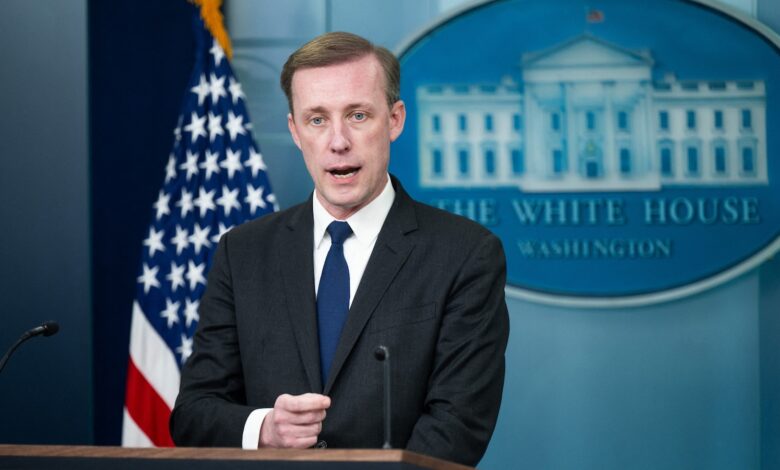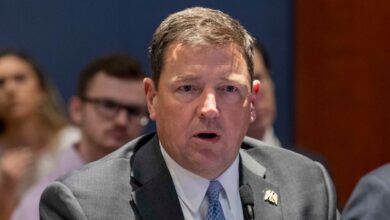Trump-Zelenskyy meeting is ‘first sliver of hope I’ve had in a while’: Former national security adviser Jake Sullivan

We engaged with Russia through diplomatic channels and worked with our allies to impose sanctions in response to their aggression in Ukraine. However, it is important to note that engagement with Russia does not mean capitulation or making concessions that undermine our allies or our values.
Sullivan emphasized the need for a strong and principled approach to negotiating with Russia, one that holds them accountable for their actions while also seeking avenues for diplomacy and de-escalation. He acknowledged that finding the right balance is challenging but crucial in dealing with a complex and volatile adversary like Russia.
On the meeting between Trump and Zelenskyy
Regarding the recent meeting between President Trump and Ukrainian President Zelenskyy, Sullivan expressed cautious optimism. He noted that Zelenskyy’s positive remarks about the meeting give him hope that Trump may be starting to see through Putin’s manipulations and false promises.
Sullivan highlighted the importance of supporting Ukraine in its efforts to defend itself against Russian aggression and called out Putin as the main obstacle to achieving a ceasefire in the region. He praised Zelenskyy for his resilience and commitment to peace, despite facing immense challenges and pressure from Russia.
On the damage to America’s credibility
In reflecting on the first hundred days of the Trump administration, Sullivan expressed deep concern about the damage done to America’s credibility and standing in the world. He noted that the administration’s erratic and inconsistent foreign policy decisions have alienated allies, emboldened adversaries, and undermined America’s global leadership.
Sullivan warned that China stands to benefit from America’s decline, as it exploits the void left by the United States’ retreat from its traditional role as a champion of democracy and human rights. He urged the administration to course-correct and reassert America’s values and interests on the world stage.
In conclusion, Sullivan’s remarks underscored the need for a strategic and principled approach to foreign policy, one that prioritizes diplomacy, alliances, and a strong defense of democratic values. He called on the administration to learn from past mistakes and chart a more coherent and consistent course in addressing the complex challenges of the 21st century. In a recent interview, former National Security Advisor Jake Sullivan discussed the approach taken by the Biden administration in dealing with Russia and Iran. He emphasized the importance of building leverage in negotiations with Russia, particularly in relation to Ukraine. Sullivan highlighted the efforts made during the previous administration to strengthen Ukraine’s position through military equipment surges, sanctions, and cooperation with European allies.
Regarding Iran, Sullivan noted that the conditions were ripe for diplomacy and a potential deal when the Biden administration took office. He expressed optimism about the possibility of reaching a diplomatic solution similar to the one proposed during the Obama administration, which was later scrapped by the Trump administration. Sullivan stressed the importance of pursuing a diplomatic approach to address the nuclear issue with Iran.
When asked about the Trump administration’s achievements in its first 100 days, Sullivan struggled to identify significant examples. While acknowledging some continuity in certain policies, such as dealing with the Houthi rebels, he criticized the approach taken on immigration, citing concerns about due process and the treatment of individuals.
The conversation also touched on controversies surrounding Defense Secretary Pete Hegseth, particularly regarding classified information shared through messaging apps. Sullivan expressed concern about the chaos within the Pentagon and calls for Hegseth’s replacement, citing feedback from former colleagues and advisers.
Overall, Sullivan underscored the need for strategic diplomacy and consistent leadership in addressing key foreign policy challenges. The interview shed light on the Biden administration’s efforts to navigate complex international relations and build upon previous initiatives while addressing new challenges head-on.





